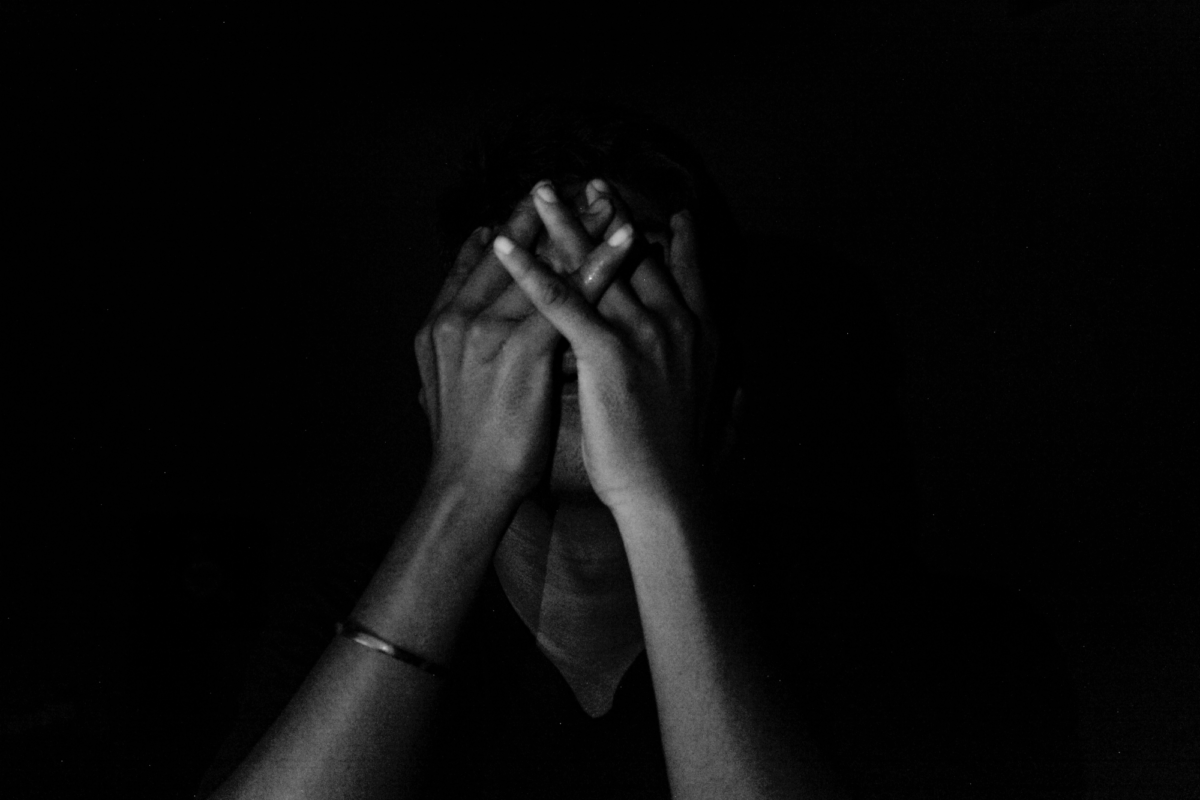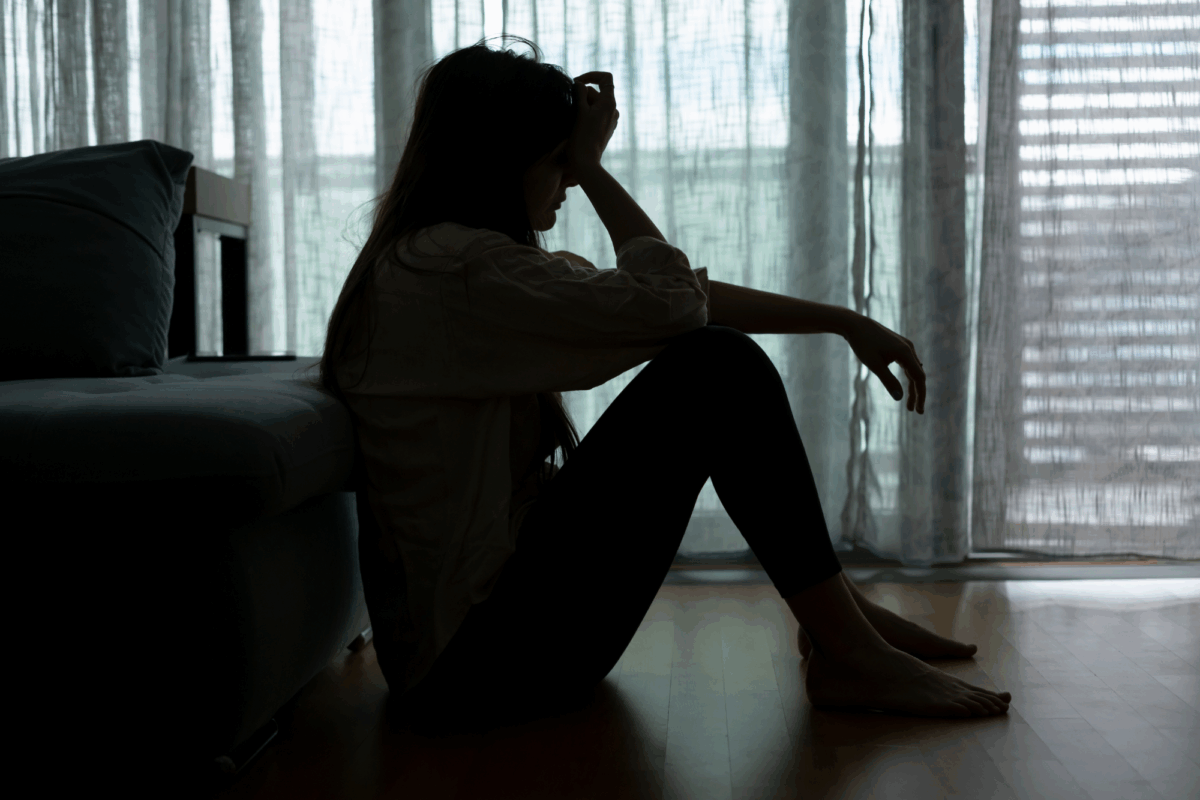At Revitalize Wellness Center, we provide personalized, evidence-based depression treatment in Weston designed to support healing and promote long-term wellness. Whether you’re dealing with major depressive disorder, bipolar disorder, borderline personality disorder, or treatment-resistant depression, our experienced team is here to offer real hope and healing.
What Is Depression?
Depression is more than a temporary feeling of sadness or a tough day—it’s a complex mental health condition that affects how you think, feel, and live. For many individuals, depression disrupts work, relationships, and self-esteem. It can make even the simplest tasks feel overwhelming. But with the right support, treating depression becomes possible—and healing begins.
Depression often shows up through emotional and physical symptoms, including:
- Persistent low mood or sadness
- Loss of interest in daily life or activities once enjoyed
- Difficulty concentrating or making decisions
- Fatigue, aches, or changes in sleep and appetite
- Increased anxiety, stress, or feelings of hopelessness
Understanding the different types of depression helps identify the right path for depression treatment, giving patients a stronger chance at long-term mental health and stability.
Major Depressive Disorder (MDD)
Major depressive disorder is one of the most well-known forms of depression. It involves persistent sadness, low energy, difficulty functioning, and a loss of interest in everyday life for at least two weeks or longer. For many, these symptoms interfere with school, work, or relationships.
MDD can occur as a single episode or as recurring bouts of depression. Treating MDD often involves a combination of depression therapy, medications, and lifestyle support to reduce symptoms and restore balance.

Persistent Depressive Disorder (Dysthymia)
Persistent depressive disorder is a longer-lasting, less intense form of depression that can linger for two years or more. Individuals may feel like they’re always “just getting by” and may not even recognize their chronic low mood as depression.
This form of depression often coexists with anxiety or chronic stress, making it important to build coping skills and seek therapy focused on long-term healing and emotional resilience.
Bipolar Disorder and Mood Disorders
Bipolar disorder is classified as a mood disorder that involves alternating periods of depression and mania or hypomania (elevated mood, energy, or irritability). During depressive phases, patients may experience all the classic signs of major depression, including low motivation, hopelessness, and sleep issues.
Treating depression within the context of bipolar disorder requires a different approach, often involving mood-stabilizing medications and structured therapy sessions to help manage shifts in energy and focus.
Borderline Personality Disorder and Personality Disorders
Personality disorders, such as borderline personality disorder (BPD), often include depressive symptoms as part of broader emotional regulation challenges. People with BPD may feel intense emotional pain, mood instability, or recurring fear of abandonment. These experiences can lead to suicidal ideation, self-harm, or difficulty maintaining relationships.
Depression therapy for BPD and related conditions focuses on increasing distress tolerance, improving interpersonal skills, and building a more stable sense of self. Treatments like DBT (dialectical behavior therapy) and cognitive behavioral therapy are often effective.
Depression with Co-Occurring Conditions
Depression often doesn’t exist in isolation. Many patients also experience:
- Anxiety disorders
- Obsessive compulsive disorder (OCD)
- Post-traumatic stress disorder (PTSD)
- Eating disorders
- Substance use challenges
In these cases, depression treatment must be integrated and holistic, addressing all aspects of a person’s overall mental health. Our team at Revitalize collaborates closely with each individual to create a care plan that accounts for co-occurring diagnoses, life experiences, and specific symptoms.
What Treatments are Available for Depression?
Depression therapy is most effective when it blends professional support, evidence-based techniques, and a holistic approach that considers both physical and emotional health. Because depression can affect people differently—from mood and motivation to anxiety symptoms and physical well-being—treatment plans are tailored to each individual’s specific needs, helping them move toward long-term healing.
When delivered in a supportive environment, treatment for depression gives individuals the space to gain insight, develop coping mechanisms, and restore a meaningful connection to themselves and their lives. Whether you’re coping with daily stressors or navigating the weight of major life transitions, professional treatment offers hope and practical tools for recovery.
Talk Therapy and Psychotherapy
Among the most widely used and effective treatment approaches, talk therapy and psychotherapy help patients explore the root causes of their emotional distress. These therapies are delivered in a safe and supportive space by trained clinicians who guide individuals toward improved clarity, communication, and self-awareness.
Common therapy options include:
- Cognitive Behavioral Therapy (CBT): Focuses on challenging and reframing negative thought patterns that reinforce depression. CBT helps individuals learn to manage stress and build healthier perspectives on life.
- Interpersonal Therapy (IPT): Aims to improve interpersonal relationships, resolve conflicts, and strengthen communication, key components in managing both depression and anxiety symptoms.
- Psychodynamic Therapy: Delves into unresolved emotional experiences, providing insight into long-held beliefs or behaviors that may be keeping someone stuck in cycles of emotional pain.
These methods not only reduce symptoms but also enhance long-term resilience and emotional regulation.
Group Therapy and Ongoing Support
Group therapy creates a shared healing experience where individuals can connect with others facing similar mental health challenges. In this supportive environment, participants explore coping mechanisms, learn from different perspectives, and practice applying new skills in real time.
The skills learned in group sessions reinforce individual therapy progress and support continued growth long after formal treatment ends. For many, group therapy becomes a foundation for lasting emotional support and accountability.
Symptom and Medication Management
For some individuals, particularly those with moderate to severe symptoms, medications can be an essential part of treatment. Antidepressant medications—such as SSRIs or SNRIs—work to rebalance brain chemistry, reducing depressive symptoms and improving focus, sleep, and mood.
Medication management includes careful oversight from a licensed provider to ensure safety, minimize side effects, and tailor medications to the patient’s evolving needs. When combined with therapy, medication can significantly enhance the ability to process emotions, focus on therapy, and manage symptoms effectively.
TMS Treatment: A Non-Invasive, FDA-Approved Treatment Option
For individuals who have not found success with traditional medications or therapies, Transcranial Magnetic Stimulation (TMS) offers a cutting-edge alternative. This FDA-approved, non-invasive treatment uses magnetic pulses to stimulate areas of the brain involved in mood regulation.
TMS requires no anesthesia or downtime and is often well-tolerated by individuals looking for new ways to treat depression without additional medication. It’s particularly beneficial for those with treatment-resistant depression, offering new hope for relief and renewed quality of life.
Taking a Holistic Approach to Mental Health
Treating depression is about more than just eliminating symptoms—it’s about helping individuals reconnect with their values, relationships, and passions. A holistic approach includes:

What We Offer at Revitalize Mental Health
At Revitalize, we meet individuals where they are—with empathy, expertise, and a wide range of evidence-based services designed to support healing from depression and related mental health conditions. Our treatment options are tailored to the individual needs of each patient and delivered in a supportive environment that fosters growth, emotional resilience, and long-term recovery.
Day Treatment (Commonly Referred to by Insurance as PHP or IOP)
Our day treatment program is ideal for individuals who need a high level of support without 24-hour supervision. This structured program—also commonly referred to by insurance providers as a partial hospitalization program (PHP) or intensive outpatient program (IOP)—provides daily access to therapeutic care, including cognitive behavioral therapy (CBT), group sessions, skill building, and medication management.
Patients participate in therapeutic activities during the day while returning home in the evenings, allowing them to maintain real-world connections while engaging in consistent clinical support. Day treatment is especially effective for managing depression, anxiety, OCD, and related disorders.
Dual Diagnosis Care
Many individuals struggling with depression also face co-occurring challenges such as substance use, personality disorders, or unresolved trauma. Our dual diagnosis services are designed to address both mental health conditions and substance abuse simultaneously, providing a truly integrated approach to healing.
Using a combination of evidence-based techniques, medication management, and trauma-informed therapy, we help individuals reclaim control of their lives, build healthy coping strategies, and restore emotional stability.
Outpatient Mental Health Treatment
For individuals who need more support than occasional therapy sessions but are stable enough to manage daily responsibilities, our outpatient mental health treatment offers flexible, effective care. This level of treatment is ideal for those navigating life transitions, managing symptoms of depression or anxiety, or continuing care after inpatient hospitalization.
Outpatient care includes access to:
- Individual therapy for one-on-one support
- Group therapy for connection and shared healing
- Family therapy to strengthen relationships and improve communication
- Medication management to optimize treatment effectiveness
Whether you’re just beginning your treatment journey or need ongoing support to maintain progress, our outpatient services help you move forward with clarity, confidence, and compassion.
Who Can Benefit from Depression Treatment?
At Revitalize Wellness Center, we work with:
- Adults and young adults experiencing major depression or mood disorders
- Individuals navigating life transitions, relationship issues, or substance abuse recovery
- People struggling with eating disorders, anxiety, OCD, or co-occurring mental health conditions
- Those who feel overwhelmed, disconnected, or stuck in unhelpful emotional patterns
Seeking therapy is a courageous first step. At Revitalize, we meet you with understanding and walk beside you as you rediscover strength, balance, and peace.
Why Choose Revitalize for Depression Therapy in Weston?
At Revitalize Wellness Center, we offer compassionate care rooted in evidence-based approaches that prioritize your overall mental well-being. Our team of licensed therapists and board-certified mental health professionals is dedicated to helping individuals struggling with depression, anxiety, and other emotional challenges identify root causes, reframe distorted thinking, and move forward with clarity and strength.
Through our supportive space and structured day treatment offerings, we focus on treating the whole person—not just symptoms—so you can heal from the inside out. Whether you’re seeking support for the first time or continuing a longer journey, we provide tools that foster lasting transformation and promote sustainable recovery.
Contact Revitalize today to begin your path toward healing with trusted, compassionate professionals by your side.
Sources
National Center for Biotechnology Information. “Cognitive Therapy.” StatPearls, StatPearls Publishing, 29 Apr. 2023, https://www.ncbi.nlm.nih.gov/books/NBK559078/.
National Center for Biotechnology Information. “Interpersonal Psychotherapy.” StatPearls, StatPearls Publishing, 24 July 2023, https://www.ncbi.nlm.nih.gov/books/NBK558998/.
Mayo Clinic Staff. “Persistent Depressive Disorder (Dysthymia).” Mayo Clinic, Mayo Foundation for Medical Education and Research, 27 Dec. 2023, https://www.mayoclinic.org/diseases-conditions/persistent-depressive-disorder/symptoms-causes/syc-20350929.
Mayo Clinic Staff. “Transcranial Magnetic Stimulation.” Mayo Clinic, Mayo Foundation for Medical Education and Research, 1 Dec. 2023, https://www.mayoclinic.org/tests-procedures/transcranial-magnetic-stimulation/about/pac-20384625.
Segal, Zindel V., et al. “Cognitive Vulnerability to Depression: A Dual Process Model.” Clinical Psychology: Science and Practice, vol. 3, no. 2, 1996, pp. 82–97. PubMed Central, https://pmc.ncbi.nlm.nih.gov/articles/PMC486942/.